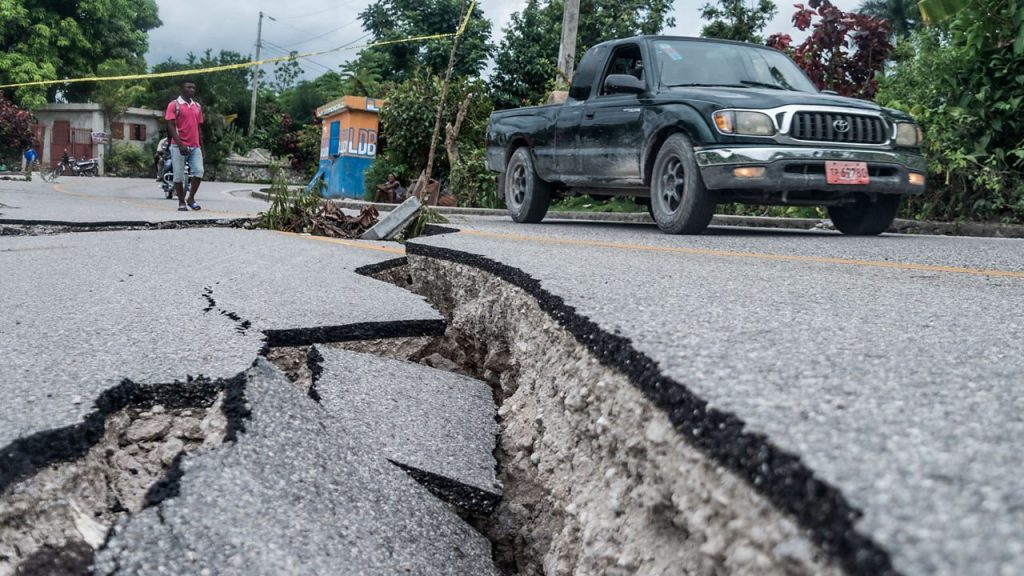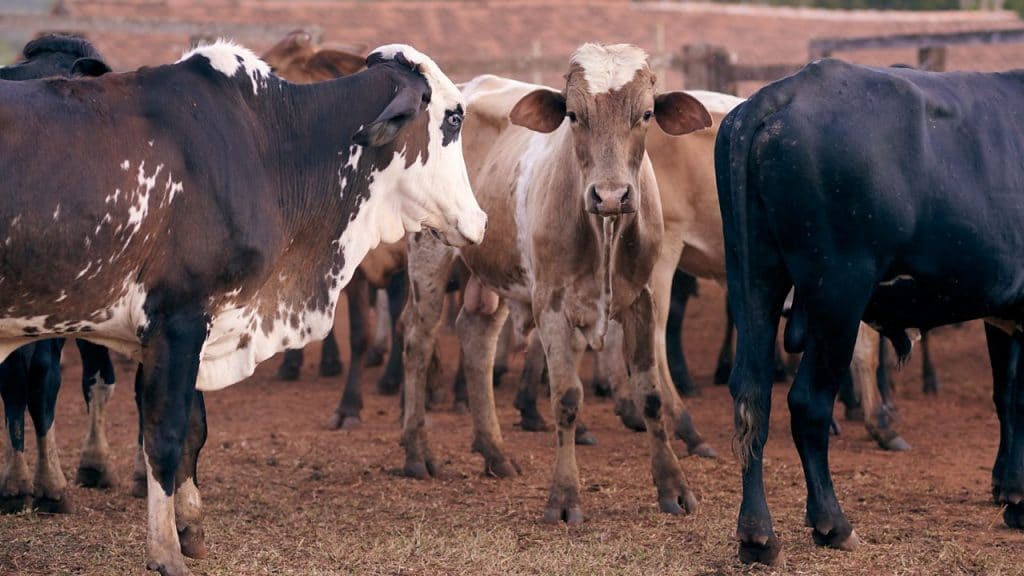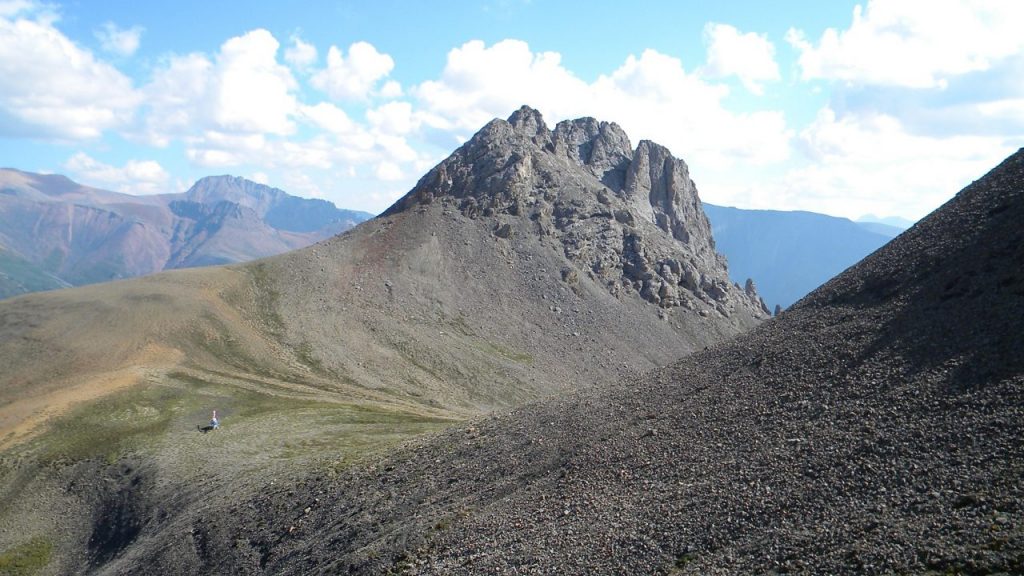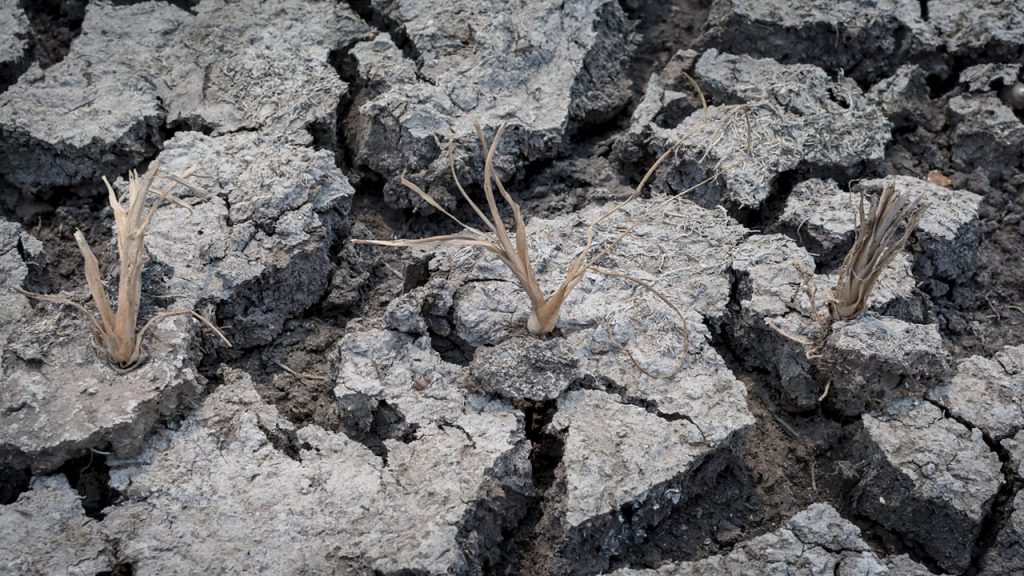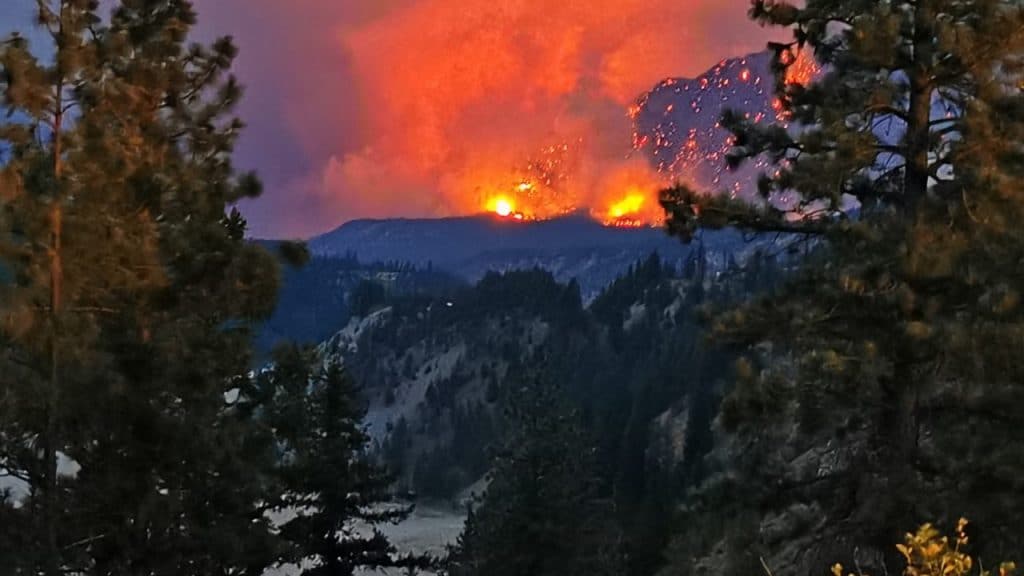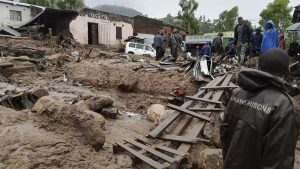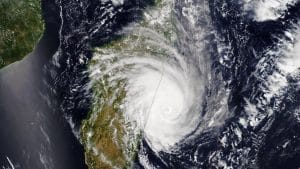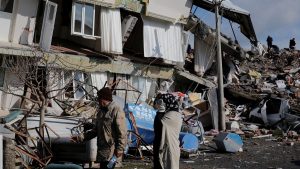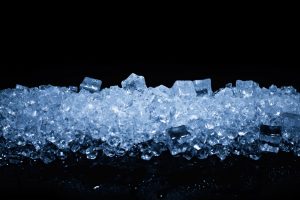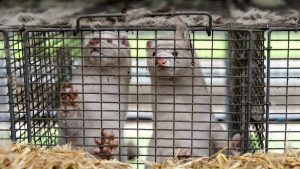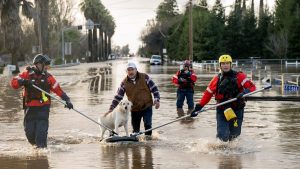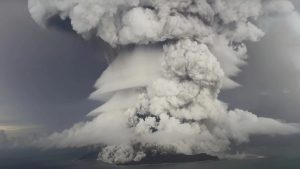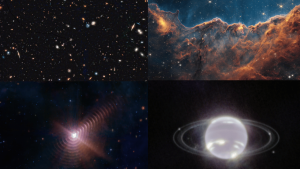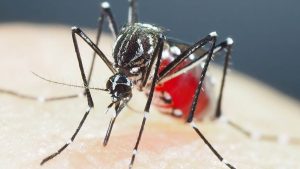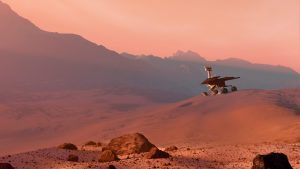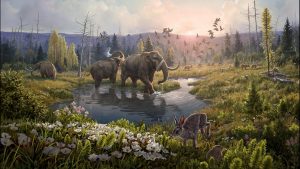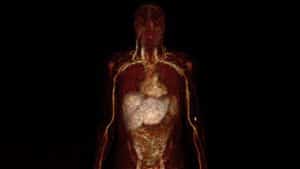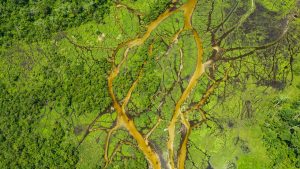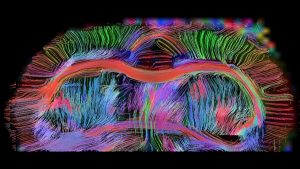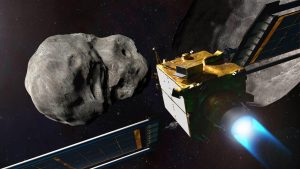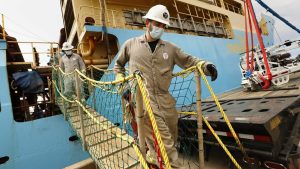Direct from the BBC Science in Action
When Sunday
Start Time: 09.00
Finish: 09.30
BBC Science in Action and science is the key to development in the modern world. Wouldn’t it be a shame to be in the dark about what is happening in the world of science?
Phuket Island radio here in Thailand opens up learning opportunities via the BBC Science in Action program. Therefore tuning into 91.5 & 102.5 FM on a Sunday and listening to Phuket and its finest FM radio station is probably a good idea. Listen to BBC Science in Action every Sunday at 9 am for your weekly taste of scientific developments.
In this edition of Science in Action, Human-induced climate change
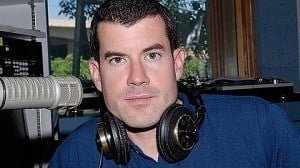
Brought to you by 91.5 & 102.5 FM from the BBC Science in Action team and presented by Jack Stewart, BBC Science in Action compiles science issues of the week from renowned science magazines.
Just because you may not have much knowledge in the field of science doesn’t mean that you can’t understand it. Science in Action straightforwardly gives you contemporary scientific news in a language that can be understood. Understood by all, not just scientists.
BBC Science in Action on Phuket Radio?
Maybe you’re wondering why you should listen to a program about science, especially if you’ve never really found it a topic of interest before. Don’t immediately forgo Science in Action, as you are sure to come across an episode with content that will spark your interest. Don’t miss the other BBC shows on the weekend, like Digital Planet, Discovery and Health Check. Science covers such a wide array of topics, from dinosaurs to earthquakes, relevant in all aspects of life. What is there not to find interesting?
Please take advantage of the fact that Phuket Island Radio offers you internet radio, making it a reality to listen to Science in Action from the BBC in London broadcasting in Phuket Thailand and all four corners of the globe. 91.5 & 102.5 FM allows you to find out Phuket news as well as global news. Even if you don’t live in Phuket, Thailand and are only here for a holiday, Phuket Island Radio makes it so that you don’t have to be scared of feeling out of the loop with current events. Visit 91.5 FM & 102.5 FM on-air and online and see for yourself what we have to offer!
For more on our BBC shows, international DJ line up and other shows, click here.
Science in Action from the BBC on Phuket FM Radio
Press PLAY and listen to this week’s show
The previous editions of Science in Action,
Seismic citizen science in Hispaniola
The epicentre of the tragic earthquake in Haiti last week was just 100km from that of the even more deadly 2010 one.
Unlike then, a network of small cheap seismic detectors run by volunteers is currently monitoring the aftershocks.
As Eric Calais says, the suspicion is that this could be the latest in a sequence of quakes, echoing previous clusters over the last few hundred years.
Hydrogen is being much touted as an alternative to natural gas as a source of fuel for homes in a low-carbon world. In particular, “blue” hydrogen – hydrogen made from fossil fuels but with the carbon dioxide being captured at the point of production – is said to be some sort of transitional fuel that could be introduced into current infrastructure with little stress.
But Robert Howarth is less optimistic. He is a co-author of a paper published last week analysing the net carbon impact of blue hydrogen production.
He argues that not only are there hidden greenhouse gas emissions in production but that in fact burning blue Hydrogen at home could have a worse impact than burning the natural gas from which it is made. Meanwhile, physicists at the US National Ignition Facility are rumoured to have made a huge stride in the quest for controlled, sustained nuclear fusion.
Using a barrage of powerful lasers to heat indirectly a tiny hydrogen isotope target, on the 8th of august, they briefly got 70% of the energy back from one of their runs.
It is a huge leap in returns and tantalisingly suggests some sort of runaway fusion reaction occurred. Around the world, hopes of laser-driven fusion energy generation are soaring, but as an ecstatic Kate Lancaster of the University of York cautions, even if it does represent ignition, we are still a long way from “plug socket efficiency” or net energy gain.
Meanwhile, scientists of the Leibniz Institute evolution and Biodiversity have been eavesdropping on bats in Panama. Human babies babble when they are learning how to talk. It’s been shown before that songbirds do something similar, but according to Ahana Fernandez, it now seems another mammal joins the babbling ranks – the younglings of the Greater Sac-Winged bat of South America.
Ahana tells Roland about her analysis.
(Photo by Reginald Loiussaint/JR/AFP via Getty Images) Presenter: Roland Pease Producer: Alex Mansfield
Methane – a climate solution?
The latest IPCC assessment raised alarm about the rate at which manmade emissions are contributing to climate change.
Much of the focus for action is on reducing levels of carbon dioxide, however, there is a more potent greenhouse gas, methane, produced by natural and industrial processes which, says Drew Shindell of Duke University and lead author on the Global Methane Assessment, is relatively easy to target for reduction.
Neuroscientist John Cryan of University College, Cork in Ireland is interested in the effects our gut microbes can have on our behaviour. It’s an unusual connection and one which he’s been experimenting on in mice.
By feeding the faeces of younger mice to older ones he has found that the older ones’ took on some of the younger ones’ behaviour. Ball lightning is the stuff of legend and the supernatural. And yet there are many reported sightings of this phenomenon.
Texas State University’s Karl Stephan is keen to uncover the science behind these observations. He’s running a crowdsourcing project encouraging people to contribute video recordings of any ball lightning events they might observe.
And Chile is home to the oldest known mummies in the World.
UNESCO world heritage status has been given to a collection of around 300 mummies from Chile’s northern deserts. The mummies of babies, children and adults are thought to have been created in response to arsenic poisoning in the region around 7,000 years ago.
Image: Livestock farm in Brazil Credit: Photo by Igor Do Vale/NurPhoto via Getty Images
Presenter: Roland Pease Producer: Julian Siddle
Record-shattering weather
July 2021 saw temperatures in the western US and Canada smash previous records by 5 degrees.
And that’s what we should expect, according to a study prepared much earlier but published, coincidentally, just a few days later.
A hallmark of rapid climate change, says author Erich Fischer of ETH Zurich, will be an accelerating number of record-shattering, and socially disruptive, events. A large new study on communications and hierarchy across a large range of our ape and monkey relatives has just been published.
Lead author Katie Slocombe of the University of York explains the findings: like us, the primates live socially in groups, and there are leaders, but the more tolerant ones are also the more communicative ones. In species with ‘despotic’ leaders, order seems to be maintained with more menacing silence.
The double helix of all DNA on earth twists in one direction. But researchers at Tsinghua University in China have made some important steps towards making mirror life, in which the DNA twists in the opposite direction. Chemistry journalist Mark Peplow discusses the significance of this discovery with Roland Pease.
One of the benefits of science’s ability to read normal DNA has been to compare human genomes from across the globe – for example in the Human Genome Diversity Project – for what they reveal about both our health – and our past.
But sequences from the Middle East have been sadly lacking. The Sanger Institute’s Mohamed Almarri and colleagues have just rectified that, saying that the Middle East played such a key role in the human story. (Photo By Tom Williams/CQ-Roll Call, Inc via Getty Images) Presenter: Roland Pease Editor: Deborah Cohen
The earliest traces of animal life on earth.
Do rocks found in Canada show animal life 350 million years older than any found before?
And, delving to the core of Mars, the guts of cats, and into the life of Steven Weinberg. Prof Elizabeth Turner of Canada’s Laurentian University reports in the journal Nature structures in some of the oldest sedimentary rocks that resemble the residue left by sponges such as the sort you might find in a bath.
350 million years older than the oldest such fossils yet identified, if they are left by such animals, they represent a complex life that existed some 90 million years before – it has been supposed – there was even enough oxygen to support such development. As she tells us, rather like previous geologists investigating the deep history of life, Elizabeth has been sitting on this idea since she was a young researcher. Since 2019 NASA’s InSight probe has been on the surface of Mars listening for seismic waves from below to try to form a picture of the planet’s internal structure.
Last week in the journal Science, three papers presented data and analysis and some surprises for planetary scientists trying to work out how a planet that began almost, but not quite, so similar to earth could have turned out so different today. Cambridge University’s Dr Sanna Cottaar gives us her take on the exciting findings.
Most of our understanding of genetics – diseases and heritability – is derived from decades of deep studies into just a few model species besides humans. But Prof Lesley Lyons runs a lab at the University of Missouri focusing almost entirely on cats. She describes to Roland a proclamation she makes this week to her fellow scientists to do more work into cat genetics and how, because of the similarities between cats and human genomes, that will bring all sorts of benefits to human (and cat) health.
Earlier this week we heard of the death of physicist Steven Weinberg – one of the giants of 20th-century particle physics and cosmology. Roland presents recordings and reminiscences of a remarkable scientist who provided so much insight into the first 3 minutes of our universe’s existence… Image: Field locations in Northwest Territories, Canada Credit: Elizabeth Turner, Laurentian University
Presenter: Roland Pease Producer: Alex Mansfield
When the funding dries up
This week the UK parliament voted to accept the Government’s continued cap on Official Development Aid.
This disappointed many researchers around the world, funded directly and indirectly through various scientific funding structures enabling international collaboration on some of the global challenges facing all of us.
These funding mechanisms make for a small fraction of the overall amount, but they have been hit hard, with many projects closing altogether. There had been hope amongst the scientific community that the cap – from 0.7% down to 0.5% of the UK’s Gross Domestic Income – might have been in place just for a year.
But it seems like the criteria set to judge when the level of aid might rise again imply that it is unlikely to happen for several years at the earliest. What, asks Science in Action, does that mean to the world of scientific collaboration on such topics as climate change, contagious disease, and emergency planning?
Researchers Chris Trisos and Jenni Barclay, with journalist Robin Bisson of Research Professional News, update us on the story.
In Zambia, where covid testing remains scarce, a project run by Boston University’s Christopher Gill has been estimating the prevalence of covid in the capital Lusaka by taking nasal swab samples from the noses of around one in five of those recently deceased, in the morgue of a major hospital.
Tantalisingly, his team have seen over the last few months a sharp rise in cases to the extent that in June, nearly 90 per cent of the cadavers tested positive for covid.
But as Chris describes, unrelated to the UK cuts, their funding has now run out, so where the graph leads from here we may not learn for a long time.
Presented by Roland Pease Produced by Alex Mansfield. (Image: Getty Images)
Human-induced climate change
Scientists say the record-breaking Pacific North-West heatwave of recent weeks must have been caused by human-induced climate change, but as Geert Jan van Oldenborgh explains to Roland Pease, despite a herculean effort to analyse the event in just a week, the precise mechanism to cause such an extreme and sudden event are so far bewildering climate modellers, exceeding even worst expectations.
Looking to the skies, Rosita Kokotanekova of the European Southern Observatory and colleagues have been getting excited about the discovery of a comet that may be twice as large as any observed before.
Being so big, it has been spotted much further out from the sun and – if the best telescopes can be convinced to join the fun – will provide astronomers with a chance to observe the core of the comet before the solar heat induces a gaseous coma to form as it nears the point in its orbit closest to the sun.
It will be around for the next decade before continuing its several million-year journeys around our mutual star. But it won’t get terribly close to the earth, at least not as close as lumps of an asteroid that fell onto a driveway in the UK earlier this year. Dr Ashley King of the UK’s Natural History Museum is leading a consortium of scientists (benefitting from a rapid research grant by the UK’s STFC) who have now officially classified it and named it.
The Winchcombe meteorite is a CM carbonaceous chondrite, meaning it represents the unspoilt early building blocks of the solar system. Falling like 4.5 billion-year-old leftover celestial lego, only a few are known around the world. Still, perhaps none have been in scientists hands in such a short period of time, continuing its pristine survival.
Dr Pablo Tsukayama has published a preprint paper announcing a new variant of interest in the ongoing evolution of the SARS-CoV2 virus. Now named by the WHO as the Lambda variant, it seems it has driven the pandemic for much of this year in Peru – as much as 80% of cases – and large fractions of the outbreak elsewhere in South America.
But as Pablo suggests, the reason we don’t know as much about it as, for example, the Alpha or Delta variants is likely because it hasn’t thus far affected the countries best equipped to do the analysis.
Maybe that could change.
Presenter: Roland Pease Producer: Alex Mansfield
BBC Science in Action is presented by Roland Pease and is available right here on Phuket FM Radio 91.5 and 102.5 FM.


